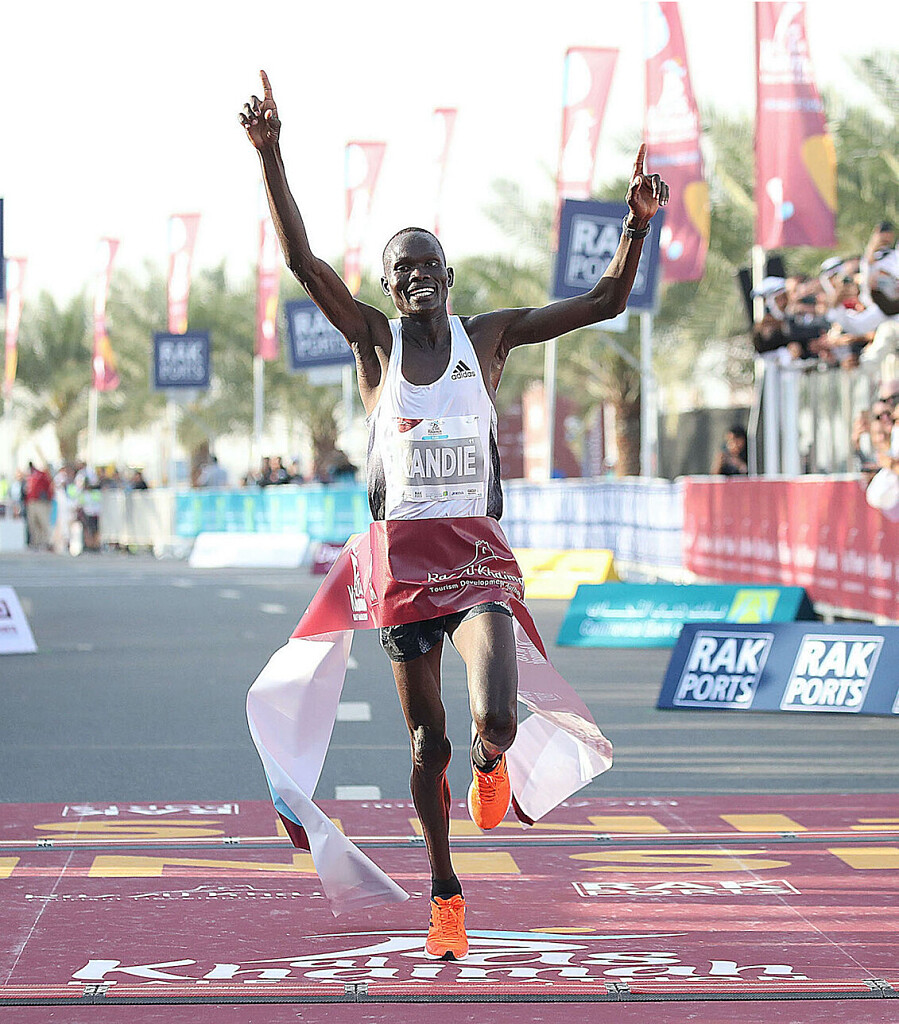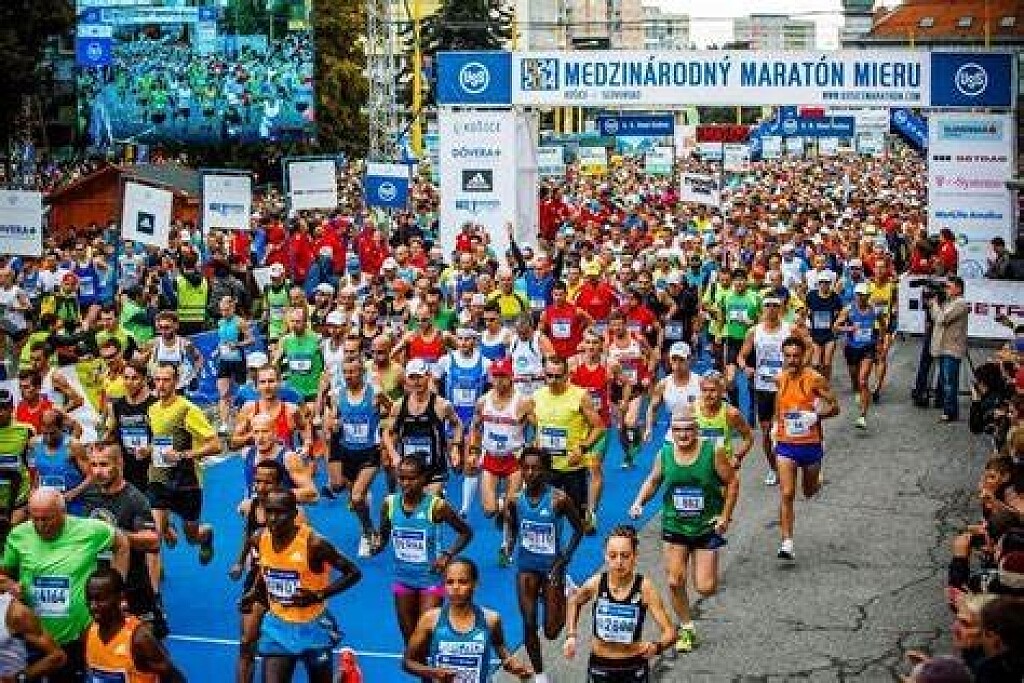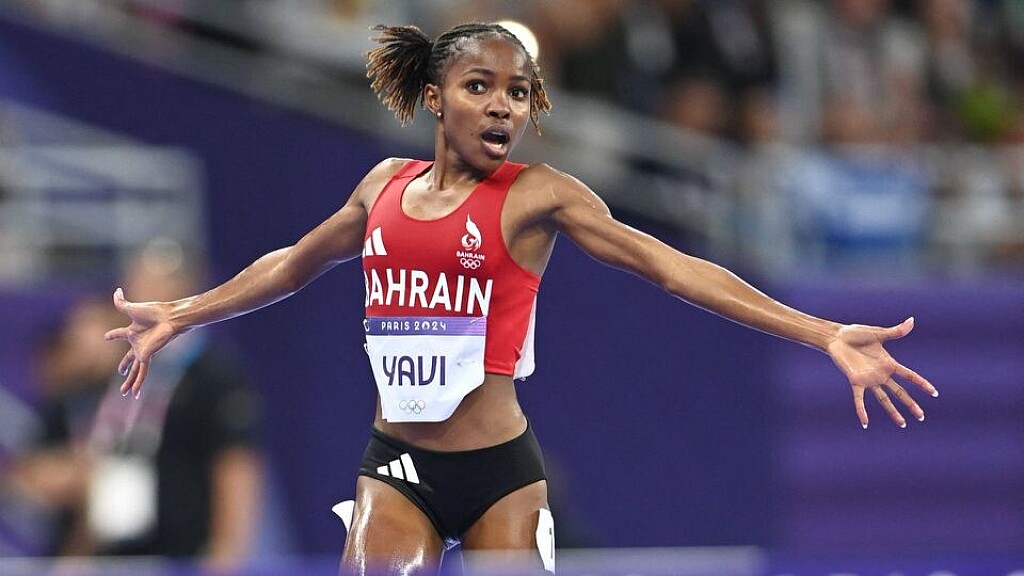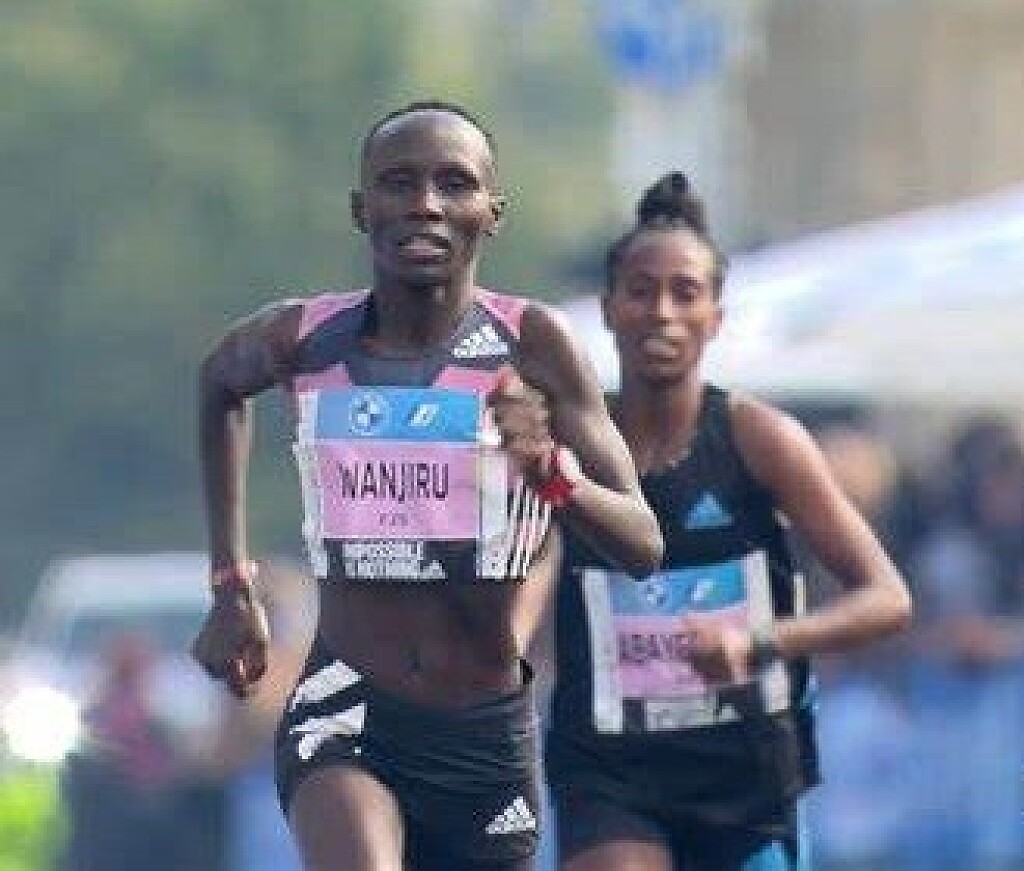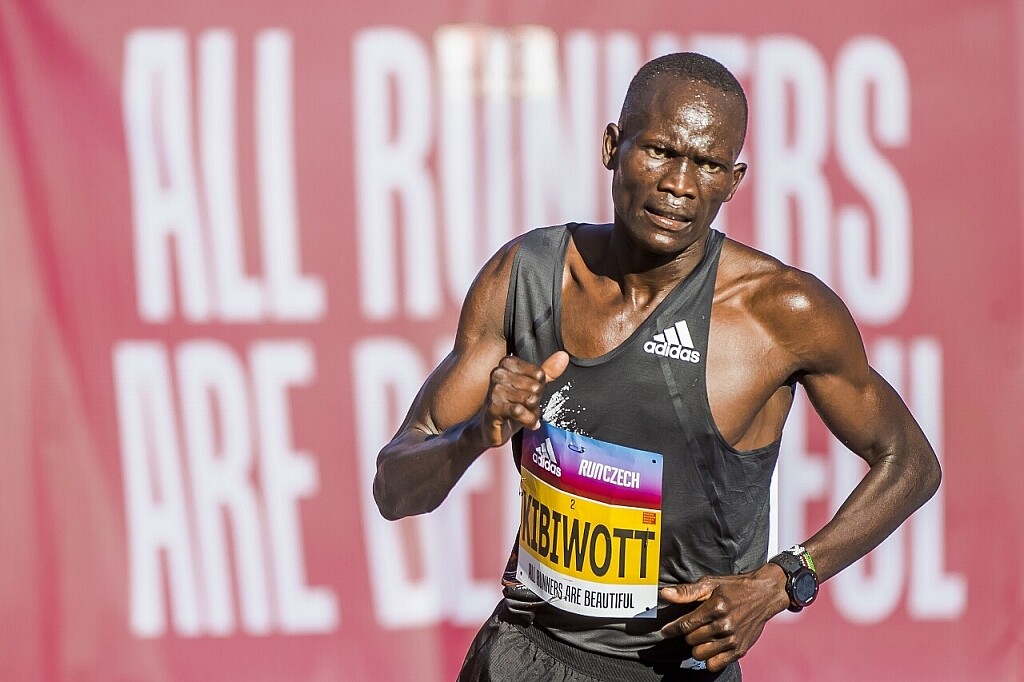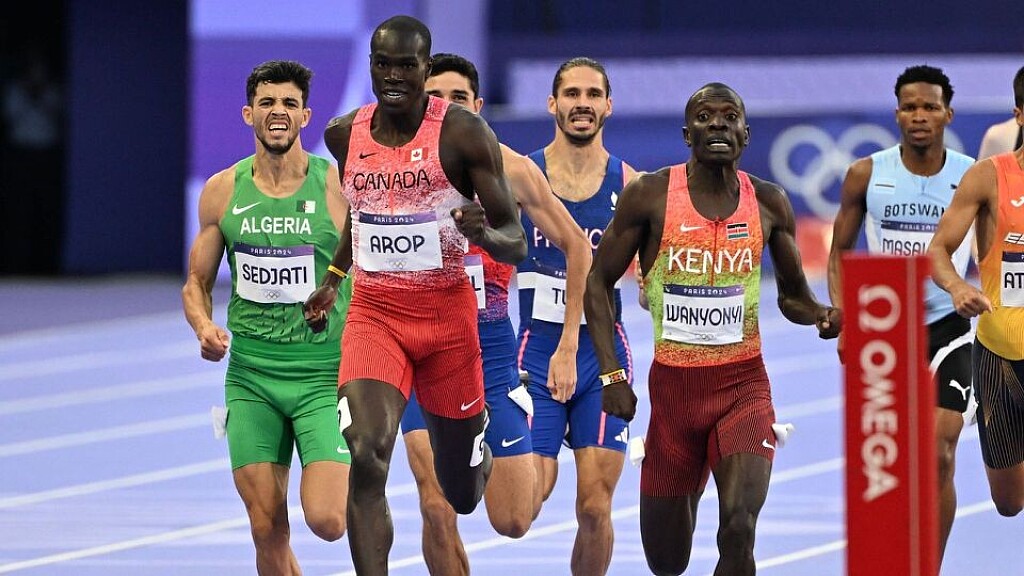Running News Daily
Top Ten Stories of the Week
8/24/2024
These are the top ten stories based on views over the last week.
50th BMW BERLIN-MARATHON ON 29 SEPTEMBER: ELITE FIELD
The men’s elite field for the 50th edition of the BMW BERLIN-MARATHON race comes with a change that reflects the recent development at the very top of elite marathon racing.
It will be the first time since 2014 that you will not find the name of either Eliud Kipchoge or Kenenisa Bekele on the start list of the BMW BERLIN-MARATHON. However the Elite Race Director of the marathon where most world records (13) were broken, Mark Milde, can be confident that not so much will change regarding the outcome. Although world-records will not be the target on 29th September, the jubilee race could well deliver extraordinary fast times yet again.
A record number of more than 50,000 runners are expected to run the 50th BMW BERLIN-MARATHON on 29th September. The race, that saw its first edition back in 1974 with 244 finishers, never had over 50,000 runners before.
From those on the men’s start list at least one has the potential to become Kenya’s next marathon superstar: Kibiwott Kandie is a former world half marathon record holder with a personal best of 57:32. This time suggests that he could become one of the fastest marathon runners of all time if he can transform his talent to the classic distance. The 28 year-old, who has a current PB of 2:04:48 and was inspired by former Berlin world record breaker Paul Tergat, is one of half a dozen runners who feature very strong personal bests of sub 2:05:00.
Returning to the BMW BERLIN-MARATHON will be Ethiopia’s Tadese Takele and Ronald Korir of Kenya, who placed third and fourth last year. Both ran their personal bests of 2:03:24 and 2:04:22 here. Kenya’s Cybrian Kotut, a younger brother of former Abbott World Marathon Majors Champion Martin Lel, will run his first BMW BERLIN-MARATHON. Kotut features a PB of 2:04:34. Ethiopians Hailemaryam Kiros (2:04:41) and Bazezew Asmare (2:04:57) are the other two runners with sub 2:05 PBs. Another runner who could challenge for a place on the podium is Samwel Mailu. The Kenyan smashed the course record of the Vienna City Marathon last year with 2:05:08. Due to an injury the bronze medallist from the 2023 World Half Marathon Championships was unable to compete this spring.
The women’s race could see a battle between Ethiopia’s newcomer Tigist Ketema and Kenya’s Rosemary Wanjiru. With their personal bests they are among the top ten on the marathon all-time list. Tigist Ketema took the Dubai Marathon this year with an unofficial world debut record of 2:16:07.
She is a training partner of Tigst Assefa, who smashed the world record at the BMW BERLIN-MARATHON a year ago. Rosemary Wanjiru ran her marathon debut in Berlin two years ago and finished second with a brilliant 2:18:00. This year she improved to 2:16:14 when she was runner-up in Tokyo.
Former 1,500m world record holder Genzebe Dibaba, who is the younger sister of Ethiopian running legend Tirunesh Dibaba, will hope to achieve a fast time on the flat Berlin course. She ran a 2:18:05 debut in Amsterdam two years ago, but was not yet able to improve this time. Genzebe Dibaba was the 2014 Laureus World Sportswoman of the Year. Fellow-Ethiopian Yebrgual Melese is the fourth woman on the start list who has a sub 2:20 PB with 2:19:36.
Elite Runners for the 50th BMW BERLIN-MARATHON:
MEN
Tadese Takele ETH 2:03:24
Ronald Korir KEN 2:04:22
Cybrian Kotut KEN 2:04:34
Hailemaryam Kiros ETH 2:04:41
Kibiwott Kandie KEN 2:04:48
Bazezew Asmare ETH 2:04:57
Samwel Mailu KEN 2:05:08
Milkesa Mengesha ETH 2:05:29
Haymanot Alew ETH 2:05:30
Philimon Kipchumba KEN 2:05:35
Stephen Kiprop KEN 2:07:04
WOMEN
Tigist Ketema ETH 2:16:07
Rosemary Wanjiru KEN 2:16:14
Genzebe Dibaba ETH 2:18:05
Yebrugal Melese ETH 2:19:36
Mestawot Fikir ETH 2:20:45
Azmera Gebru ETH 2:20:48
Sisay Gola ETH 2:20:50
Ababel Yeshaneh ETH 2:20:51
Mizuki Matsuda JPN 2:20:52
Fikrte Wereta ETH 2:21:32
(08/16/24) Views: 225Kenya’s John Korir claims dominant men’s win at Falmouth Road Race, while Fentaye Azale takes women’s in sprint finish
Kenya’s John Korir flirted with the course record at the Falmouth Road Race on Sunday, dominating the men’s field to win by 51 seconds in 31 minutes, 15 seconds over the seven miles.
Korir took control early and never relented, opening a 23-second gap by the 5K mark. That lead stretched to over a minute through 10K, and the field closed ever so slightly as Korir missed the course record, set last year by Wesley Kiptoo, by just seven seconds. Korir ran the third-fastest winning time in the race’s 52-year history.
“I was confident. I knew I was going to win because I am in very good shape,” said Korir. “I was feeling good, so I decided to go and see how it went.”
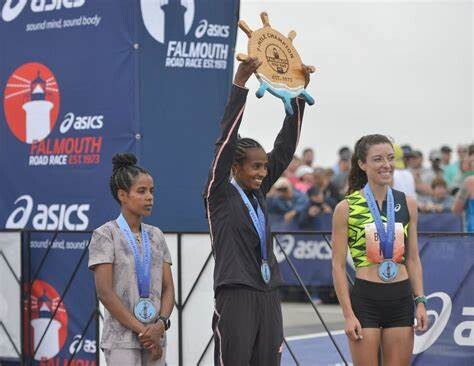
It was an entirely different race on the women’s side, where Ethiopia’s Fentaye Azale needed every yard from Woods Hole to Falmouth Heights to put away the competition. In the end, Azale edged countrywoman Melknat Wudu by just a second with a winning 36:10. The two came flying down the final hill side by side, but Azale had an extra gear in the final steps.
Emma Bates, the top American woman at back-to-back Boston Marathons, was just six seconds behind the dueling Ethiopians. Another American, Emma Grace Hurley, led a trio across the line just behind Bates.
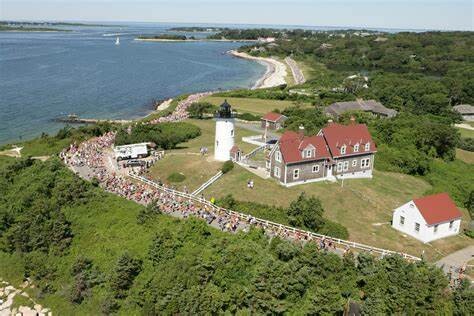
“It’s always so welcoming here,” said Bates. “People were shouting ‘Emma’ the entire way and I was running with Emma Grace Hurley, so both of us were just soaking up the energy from the crowd.”
Morgan Beadlescomb was the top American on the men’s side, finishing fifth, 66 seconds behind Korir. Three-time champion Ben Flanagan of Canada was seventh.
More than 11,000 runners participated in both races this year.
(08/19/24) Views: 170y Amin Touri
Košice Peace Marathon’s origins from Paris Olympic Marathon in 1924
The Košice Peace Marathon returns to Paris after 100 years
The inspiring and authentic story of the founder of the Košice Peace Marathon (KPM), Vojtech Bukovsky, has captivated the world. In the venue of the 2024 Olympic Games in Paris, the Maison Slovaque – the Slovak Olympic House – hosted the ceremonial presentation of Europe’s oldest marathon.
Today in the Slovak Olympic House, the organisers of the KPM, representatives of the Marathon Club, the Slovak Olympic and Sports Committee and the City of Košice presented the history of the race’s creation. The breathtakingly inspiring story of Vojtech Bukovsky was told through the premiere of a documentary film dedicated to the 100th anniversary of the founding of the Košice Marathon.
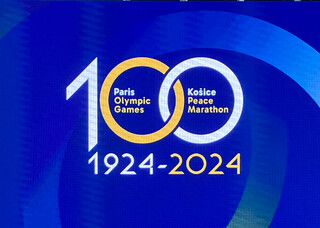
Among the invited guests were Mr. Christophe Najdovski, Vice Mayor of the City of Paris, Ms. Kirsty Coventry, Member of the Executive Committee of the International Olympic Committee and Minister of Sport of Zimbabwe, Mr. Dobromir Karamarinov, President of European Athletics, H.E. Ján Šoth, Ambassador of the Slovak Republic to France, and Mr. Jean-Michel Brun, Member of the Executive Board of the European Olympic Committee and Vice President of the French Olympic Committee.
“Over the weekend we will learn the names of the new Olympic winners in the marathon. We will pay tribute to them in the same way as Vojtech Bukovsky, the founder of the marathon in Košice, did here in Paris on 13 July 1924, when he stood up at the Colombes stadium to greet the Finnish runner Albin Stenroos and all his rivals in the finish line. 100 years have passed since then. We watch today’s battles under the Eiffel Tower with enthusiasm and are filled with pride that we can stand here and tell the story of the centenary of the marathon in Košice to the whole world. It is a story filled with courage, friendship, perseverance and the desire for peace and comfort. Vojtech Bukovsky was enchanted by the Paris Olympics 100 years ago and by the ideas of Baron Pierre de Coubertin. He said, among other things, that the most important thing in life is not to win, but to compete. And these words of his fully capture one of the basic philosophies of the modern marathon today. Let’s stay true to it,” said Branislav Koniar, Race Director of the Košice Peace Marathon.
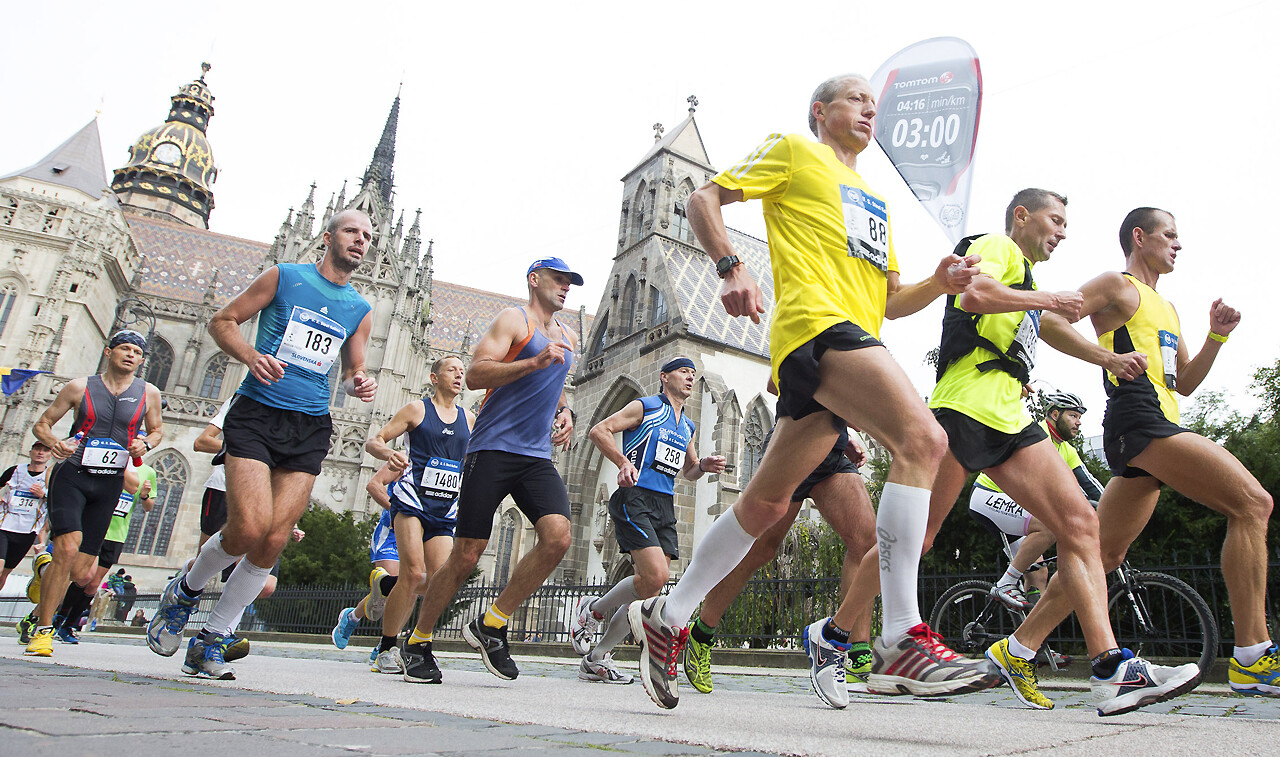
The metropolis of France and the Olympic ideals have a very special place in the birth certificate of the Košice Peace Marathon. The impulses leading to its creation are very stronglylinked to Paris, where, as today, the 1924 race was held under the five rings. The 30-year-old Vojtech Bukovský was also watching closely the competition that time. He came from Košice to experience this sporting event first-hand as a sports enthusiast, journalist and referee. When he applauded Albin Stenroos, the Finnish winner of the Olympic marathon, on 13 July, a dream was born in his mind, which he turned into reality just three months later.
“The Košice Peace Marathon marks an extraordinary milestone of its history. Inspired by the Olympic spirit of Paris 1924, it is a living example of the power of Olympic ideals to unite nations and celebrate peace through sport. At the Maison Slovaque, the Slovak Olympic House in Paris, we symbolically linked two historical moments. After 100 years, the story of one of the biggest and most important events in Slovak sport has once again returned to the city where the inspiration for its creation came from. Symbolically, it happened again at the time of the Olympic Games. This precious legacy reminds us that the Olympic Games are more than just a competition. They are an impulse that can inspire and change the world. We are proud at the Slovak Olympic and Sports Committee that the dream of one man inspired by the Olympic marathon continues today, uniting endurance athletes from around the world in the name of peace and understanding," said Slovak Olympic and Sports Committee Secretary General, Jozef Liba.
The courage with which Vojtech Bukovský set about organising the marathon is still an amazing act also on a global scale. Despite the fact that this sporting adventure did not come easily, today the marathon enjoys prestige and an important position on the world athletics map. In Košice, the tradition has become an event with a society-wide impact, representing the city and its inhabitants in a unique way. “The marathon is always a special event for us. And we, the citizens of Košice, are happy that runners from all over the world come back to us. But it is not for the records or the financial bonuses. They come for the people of Košice and the unrepeatable atmosphere. I also feel the need to recall the message of the Olympics, which is ekecheiria – that is, peace to arms, because the message of the Kosice Marathon is exactly that – peace. It is the strongest value for all of us, even in these times,” adds the Mayor of the City of Košice, Jaroslav Polaček. The City of Košice is one of the most important partners of the KPM, and it participates not only financially and organizationally, but also technically and personally in the preparations of the biggest sporting event.
The presentation of the KPM in Paris is the best invitation to the anniversary edition of the event. In addition to the sporting feats of elite runners, the performances of “mortals”, amateur or weekend runners, who sign up in their thousands for the Košice marathon course, will also resonate. This community has always been the soul of the KPM. “Millions of runners from all continents constantly confirm us that sport and marathon can unite people of every religion, every skin colour, every nationality. The strength of this community is unparalleled. And it gives strength to us in Košice. Without it, we would certainly not have been able to overcome the most diverse obstacles for 100 years. Let us wish that tomorrow’s marathon mission here in Paris will be a success for everyone – both for the medal winners and for those who finish later. It will certainly be the same on 6 October 2024 in Košice. Come to see it, come to experience it. You will be cordially welcome,” – concludes Ján Sudzina, the President of the Košice Marathon Club.Part of this commemorative meeting was also the presentation of miniaturized replicas of the statue of the marathoner, which has been a landmark of the city and the marathon itself since 1962. They will go to Paris City Hall and also to the International Olympic Committee and Europaen Athletics represented at this ceremony by President Dobromir Karamanirov.
And of course, there was talk of the actual Olympic marathon, which will become a hugely watched event on Saturday, 10th August. In addition to the best marathon runners, more than 20,000 runners from all over the world will take to the track in a unique project that has so far been unprecedented at the Games under five rings. The starting field of hobby runners will include those from Slovakia. Three of them have accepted the invitation from the Marathon Club and will personally take part in the ceremony. They are Milan Šimoník, Lukáš Jáchym and Marián Vidra. From the hands of Branislav Koniar and Jan Sudzina they have received symbolic starting numbers, with which they will take part in tomorrow’s marathon in Paris. They carry the logo and the message of the mutual relationship between the two cities, which was born from the enthusiasm of Vojtech Bukovsky 100 years ago.
Let us also add that two legendary athletes were also present at the ceremony. Kipchoge Keino of Kenya became the first African to win Olympic gold in track and field in Mexico City in 1968 and defended his title four years later in Munich. His compatriot Tegla Loroupe competed in Košice in 1997 and won a gold medal at the World Half Marathon Championships held in the city. After winning the world’s biggest marathons and retiring from her career, she became a special UN ambassador with the aim of putting together repeatedly a team of athletes made up of refugees who have had to leave their country for war or humanitarian reasons. Such a team is also starting this time at the Games in Paris.
(08/16/24) Views: 149AIMS
What Kenya intend to do about foreign countries poaching athletes
Kenya's government is developing policies to prevent the poaching of athletes by foreign nations and enhance local sports infrastructure.
Kenyan President William Ruto recently addressed the pressing issue of athlete poaching by foreign nations during a breakfast reception at the Eldoret State Lodge.
With key stakeholders in attendance, including the Kenyan Olympics team that performed admirably at the Paris Olympics, President Ruto outlined the government's commitment to tackling the migration of top-tier athletes to countries like Bahrain, Israel, Qatar, and the USA.
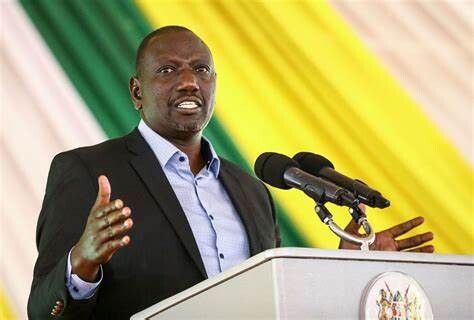
Amidst a celebratory atmosphere for the team's return, the President voiced his concern over the growing trend of Kenyan athletes representing other nations.
"The Government will work with all stakeholders to develop a policy that will address the challenges hindering Kenya’s progress in sports," he declared.
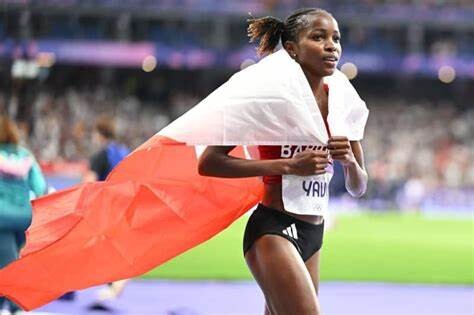
"Our athletics dominance is increasingly being encroached upon. We must come up with initiatives to correct the situation," President Ruto emphasized.
His government plans to work closely with national and county governments, as well as sports federations, to craft a comprehensive sports policy that addresses these concerns comprehensively.
The poaching of athletes has been a contentious issue, highlighted by incidents where Kenyan-born athletes have excelled on the international stage under foreign flags.
Notably, Winfred Mutile Yavi recently won gold and set a new Olympic record in the 3000m steeplechase for Bahrain, sparking widespread debate in Kenya about the loss of native talent to other countries.
The President reassured the public and athletes that the Sports Fund, established to support sportspeople's welfare, will be strictly used for its intended purpose.
"The fund would not be used for other purposes but to cater for the welfare of our sportsmen and women who he described as the greatest ambassadors of Kenya," he affirmed.
Ruto's administration also aims to diversify the sports disciplines at the international level, encouraging more inclusive participation across various sports.
“By expanding and diversifying our sports, we will get more people participating,” the President noted.
Furthermore, the government has intensified efforts to combat doping, a significant concern that has marred the country's sports reputation.
"We will deal with the doping menace not to undermine our sporting activities, but to deal with the problem," President Ruto stated.
In addition to policy reforms, President Ruto encouraged the nation to celebrate rather than criticize their athletes.
"Let’s criticize our athletes less and celebrate them more. We should always thank and appreciate our success in sports," he urged.
The initiatives outlined by President Ruto not only aim to retain athletic talent but also to elevate the standards and global competitiveness of Kenya's sports sectors.
(08/17/24) Views: 142Festus Chuma
Wanjiru and Takele return for 50th Berlin Marathon
Four women with sub-2:20 PBs and six men to have dipped under 2:05 feature on the entry lists for the BMW Berlin Marathon, a World Athletics Platinum Label road race, on September 29.
Ethiopia’s Tigist Ketema and Kenya’s Rosemary Wanjiru top the women’s entry list with PBs that put them in the top 10 on the world marathon all-time list.
Ketema, who had been better known as an 800m and 1500m specialist, stormed into the marathon spotlight in Dubai in January as she ran 2:16:07, a time that makes her the ninth-fastest women’s marathon runner in history. She followed that with 2:23:21 for seventh place in London in April and Berlin will be her first race since then.
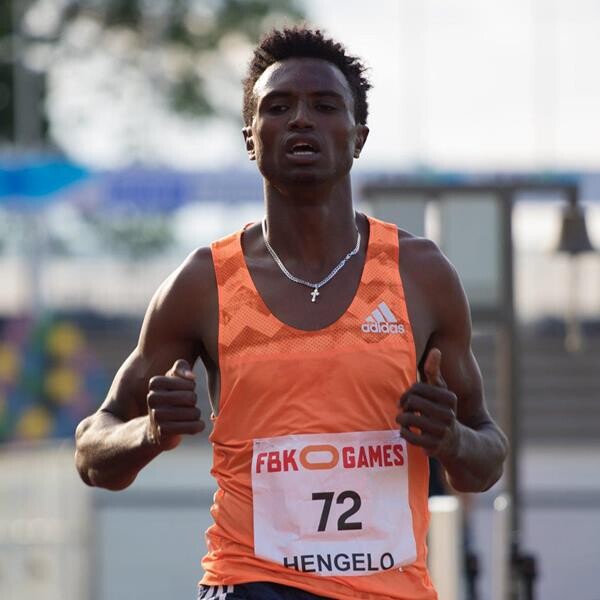
Just one place behind Ketema on the all-time list is Wanjiru, who clocked 2:16:14 to finish second in Tokyo in March. That followed her sixth place in the World Championships marathon in Budapest and victory in the Tokyo Marathon last year. Wanjiru also finished second in Berlin in 2022, running 2:18:00 on her debut.
Joining them on the start line are Ethiopia’s Genzebe Dibaba and Yebrugal Melese, who have respective PBs of 2:18:05 and 2:19:36, plus their compatriots Mestawot Fikir (2:20:45), Azmera Gebru (2:20:48), Sisay Gola (2:20:50), Ababel Yeshaneh (2:20:51) and Fikrte Wereta (2:21:32), as well as Japan’s Mizuki Matsuda (2:20:52).
A total of 13 world records have so far been set in the Berlin Marathon, the most recent being the 2:11:53 by Tigist Assefa in last year’s women’s race.
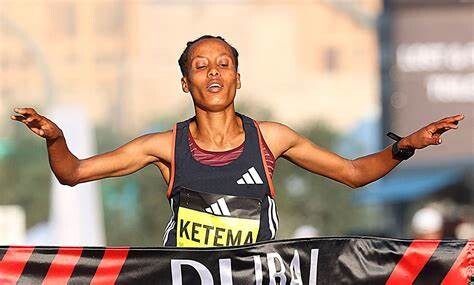
The men’s title on that occasion was won by Eliud Kipchoge, as he claimed a record fifth victory.
This year, for the first time since 2014, the men’s race will not feature Kipchoge or Kenenisa Bekele – who between them have won the race seven times, with two of Kipchoge’s wins having been claimed in world records – but fast times will still be the target.
Among those who will be returning to Berlin are Ethiopia’s Tadese Takele and Ronald Korir of Kenya, who placed third and fourth last year in respective PBs of 2:03:24 and 2:04:22.
Kenya’s Cybrian Kotut ran his PB of 2:04:34 when finishing second in Amsterdam last year and makes his Berlin Marathon debut, while Ethiopia’s Hailemaryam Kiros and Bazezew Asmare have also broken 2:05 in their careers so far, respectively running 2:04:41 in Paris in 2021 and 2:04:57 in Amsterdam in 2022.
Kenya’s Kibiwott Kandie races the marathon for the third time. The former world half marathon record-holder, who clocked 57:32 for 13.1 miles in 2020, will be looking to build on the PB of 2:04:48 he set in Valencia last year.
Also seeking a spot on the podium will be Kenya’s Samwel Mailu, the world half marathon bronze medallist who set a course record of 2:05:08 to win the Vienna City Marathon last year and continues his comeback after injury.
(08/16/24) Views: 137World Athletics
Leadville 100 sees long-standing course record fall
This year's edition of "the race across the sky" saw history-making performances on both the men's and women's sides
Leadville 100, known as the “race across the sky” for its stunning vistas as it traverses the Colorado Rockies, has been a staple in the ultrarunning community since its inception in 1983. This year’s event saw blistering performances in both the men’s and women’s races, with popular coach and author David Roche taking 16 minutes off the long-standing course record, and women’s race winner Mary Denholm recording the second-fastest time ever at the event.
The 100-mile race has runners climbing nearly 4,800 metres of elevation gain over rugged mountain trails, and runners begin and end in Leadville, Colo.
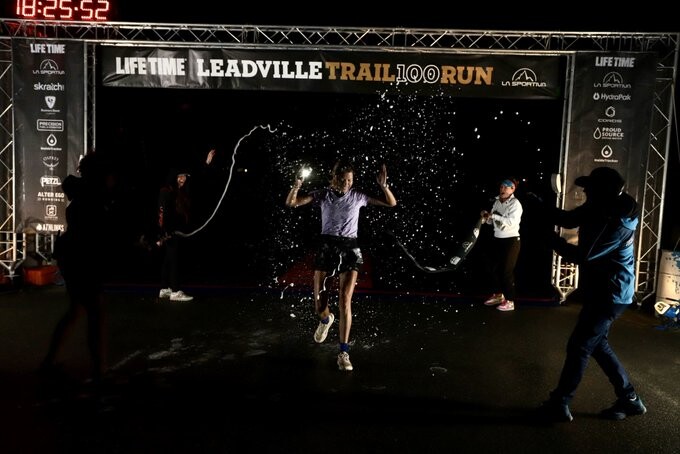
Women’s race
Denholm took off hot and dominated the competition from start to finish. By the halfway point, she had built an insurmountable 50-minute lead. She crossed the finish line in 18:23:51, securing the second-fastest time ever recorded for the women’s race, just short of legendary Ann Trason’s mark of 18:06:24, set in 1994. Denholm was followed by fellow American runners Zoe Rom in 21:27:41, and Julie Wright in 21:48:57.
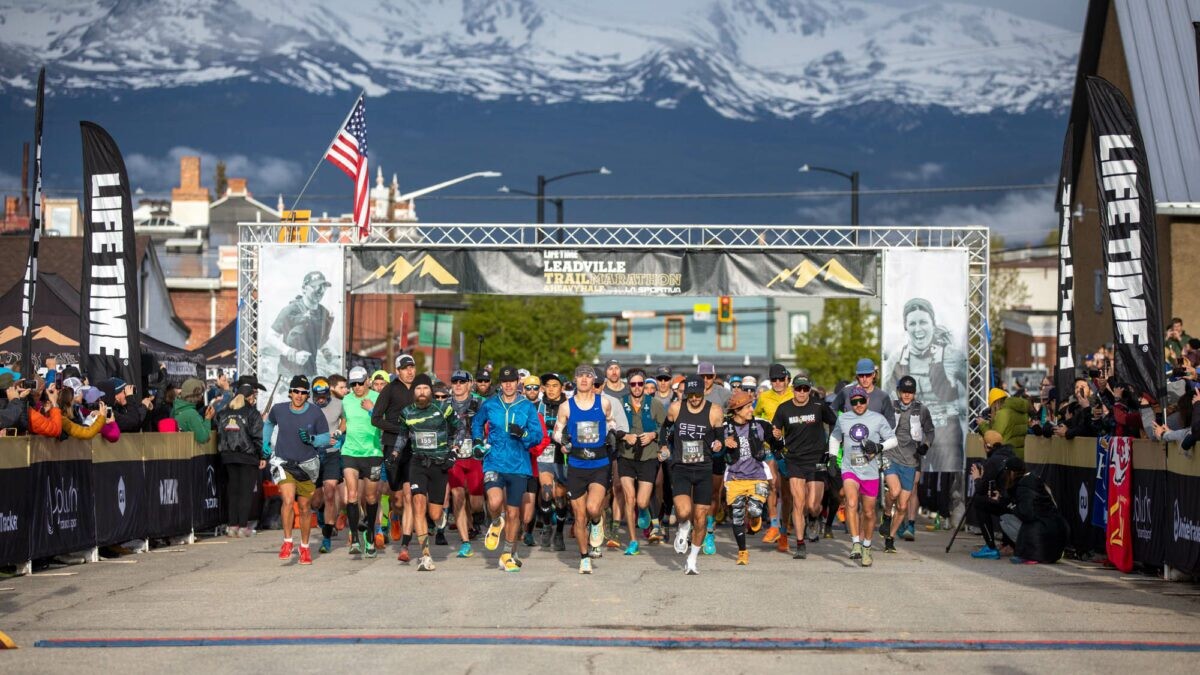
Alberta’s Ailsa MacDonald and Molly Hurford of Ontario were initially in contention for podium positions, but both faced challenges that saw them taking DNFs. Hurford left the race after suffering a badly sprained ankle, and MacDonald after dealing with unrelenting gut issues.
Men’s race
Like Denholm, Roche set a fast pace from the start and built on his lead throughout the race. His time of 15:26:34 took more than 16 minutes off the previous course record, set by Matt Carpenter in 2005. He was followed in by U.S. ultrarunners Adrian Macdonald in 15:56:34, and Ryan Montgomery in 16:09:40.
Pete Kostelnick, a well-known ultrarunner famous for completing the fastest transcon run of the U.S. in 2016 (42 days, six hours and 30 minutes), made a remarkable return to running earlier this year after recovering from a severe car accident that resulted in multiple pelvic fractures. In May, Kostelnick finished the Cocodona 250, followed by Badwater 135 only a few weeks ago; he finished Leadville 100 in 24:30:18.
Calgary’s Reiner Pauwwe took the 28th overall position (24th man) in 22:16:59.
(08/19/24) Views: 131Keeley Milne
Can salt tabs help your race performance?
Are salt tabs key to your race-day success, or just another overhyped supplement?
In distance races, the right nutrition can be your secret weapon—or your Achilles’s heel. Among the arsenal of strategies used by endurance athletes, salt tablets spark some of the most heated debates. Do these tiny tabs hold the key to conquering those tough miles or are they just another fad? Let’s explore the science behind salt tabs and discover whether you actually need them—and how much is enough to keep you going strong.

Understanding electrolyte balance
During long runs, especially in hot and humid conditions, your body sweats out not just water but also vital electrolytes, including sodium (sodium chloride). Sodium is crucial for maintaining fluid balance, nerve function and muscle contractions. In extreme cases, losing too much sodium through sweat without replacing it can lead to hyponatremia (which is dangerous). Salt tablets help replace the sodium lost during prolonged physical activity, preventing electrolyte imbalances that can lead to muscle cramps, fatigue and worse.

How much do you need?
The amount of sodium you need during a long distance race will vary widely depending on factors such as your sweat rate, the race conditions and your individual physiology. On average, runners lose about 500 to 1,500 milligrams of sodium per litre of sweat. However, research suggests that the need for salt supplementation isn’t universal, with some studies indicating that for most runners, normal hydration with electrolyte-rich fluids is sufficient to maintain sodium balance. Salt tabs may be more useful for people who sweat heavily or those running long distances in extreme heat, where sodium losses are more pronounced. It’s also crucial to remember that taking too much sodium can lead to gastrointestinal issues or increased thirst, so it’s essential to tailor your intake to your specific needs.
Finding the right balance
If you decide to use salt tabs during your ultra, it’s essential to experiment with them during training. Start by understanding your sweat rate—some experts suggest weighing yourself before and after a run to gauge how much fluid and sodium you’re losing. From there, you can determine whether you need to supplement with salt tablets and in what quantity. Typically, athletes might take one salt tab every 60 to 90 minutes during a marathon or ultra, but this can vary widely. Listen to your body, monitor how you feel and adjust your strategy as needed.
(08/19/24) Views: 129Keeley Milne
Cannon, Nelson win 54th Paavo
The three H's are what make the Paavo Nurmi Marathon so difficult.
Heat. Humidity. Hills.
But sometimes runners catch a break from two of them. On a fall-like day when spectators donned hoodies, the 54th Paavo proved fast with none of the heat and humidity, even as midday approached.
"While it may not have been the best weather for spectators, it was fantastic for runners," race director Derek Lindstrom said. "The runners ran so well."
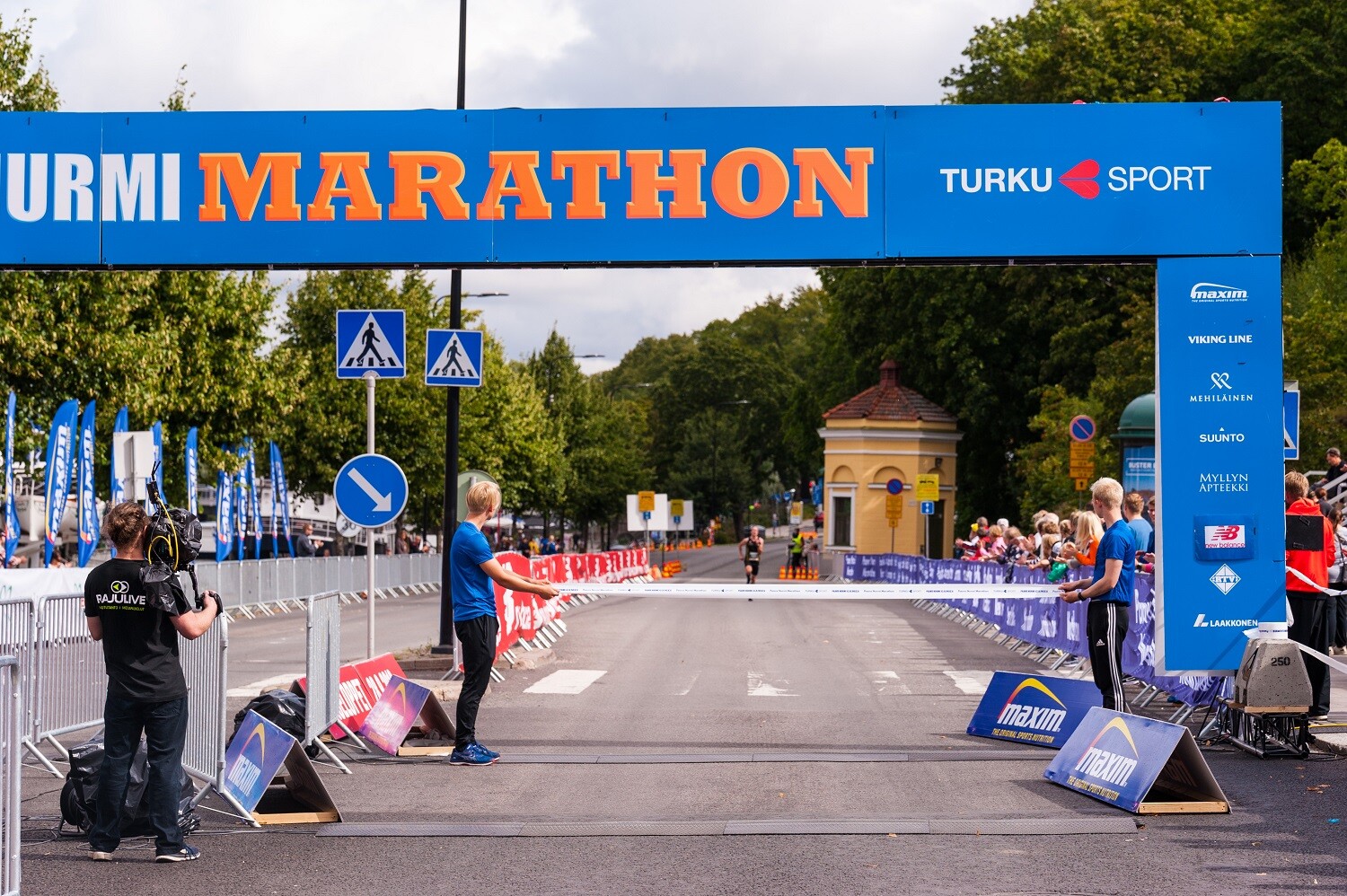
Six runners cleared the three-hour mark, led by Ethan Cannon's 2:27:20, the fastest Paavo finish in 31 years.
"It was that kind of day," Lindstrom said. "Fast weather, but that's a fast time, that's fast running."
The women's winner, Sarah Nelson, finished in 3:18:49, about a half an hour faster than last year's first-place finisher.
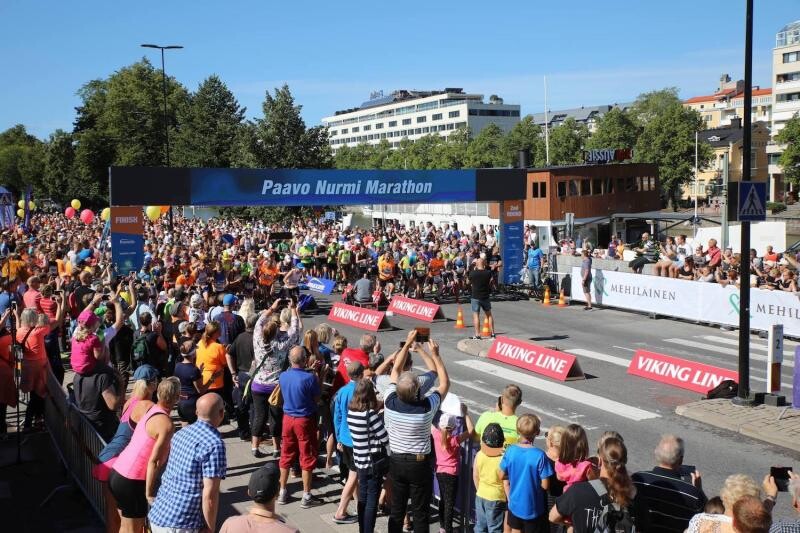
Cannon, 27, of Minneapolis was the favorite coming in, Lindstrom said. He lived up to it with the Paavo's fastest time since four-time winner Todd Sperling ran it in 2:27:00 in 1993. The only other runner to clear 2:30 since then was Ironwood graduate Alan Peterson, who won it in 2018 with a time of 2:28:12. Most of the other winners have been in the 2:33 to 2:46 range.
The fastest finish all-time happened all the way back in 1978 when Richard Wilde ran the course in 2:19:11.
Cannon was looking for another marathon to get under his belt, he had only done one before. He found the Paavo online - it's not too far from Minneapolis and he was just up here.
He ran track and cross country at the University of Minnesota in the 2021-22 school year as a graduate transfer from BYU. After finishing that, he moved on to road races - 10K, half-marathons - for the last couple of years.
"Kind of a natural step up would be to do the marathon," he said. "I did my first one last fall."
He made the transition seem pretty easy with his super fast time in the Paavo.
"Running a marathon is like a whole different sport, it feels like almost," Cannon said, "because there's different considerations you have to make in terms of fueling. It definitely is good to have the background. It's very normal for me to run 18 miles on a Saturday morning, but definitely it is an adjustment. It's unlike any race I've run before, for sure."
He looks to keep running marathons - and see some new places while doing it. He also hopes to come back to the Paavo someday, too.
Winning the race felt good, he said.
"You get a lot of support from the other runners because you end up passing a lot of people in the half-marathon. In fact, I was able to run with some of the relay teams, I was able to keep up with those teams as they were running the marathon relay," Cannon said. "There was just a lot of support on the course for me from the fellow people who recognized I was in front of the marathon race and they were cheering me on. That definitely felt good and helped me to keep pushing and try to win and get a good time."
And, of course, the conditions were great.
"The weather was perfect. I'm actually a sucker for cloudy days anyway. It was dry, so not even wet at all, so just perfect," Cannon said. "The course was just fantastic, so beautiful out there. Like the first 10 miles or so, I was just kind of sightseeing, so that was very enjoyable. Of course, later on, the pain sets in."
Brad Vaara of Hurley was one of the six runners to finish in under three hours. He placed fourth in 2:54:10.
Nelson, 25, of Chicago, finished the fastest since Emily Jaehnig's 3:15:45 in 2016. The last three winners were all over 3:40, but Nelson finished in 3:18:49.
That compares more favorably to other finishing times over the years. Six-time winner Candace Schneider finished between 3:10 and 3:16 in five of those wins and eight-time champion Ann Heastlett was between 3:05 and 3:21. (Heaslett ran this year and finished in 10th place.)
"I'm really proud of myself," Nelson said of getting the win. "I know it's really hard for me, there are no pacers for me or anything. Whenever I see a person whether it's a half or full marathon, I tried to pass them. That gets me more motivated."
She flew from Chicago to Ironwood and was happy to get the chance to run the Paavo for the first time.
Her cross country coach when she was at Harper community college (in suburban Palatine), James MacNider, won the Paavo in 1979, and speaking of fast finishers, his time is the second fastest on record at 2:20:05.
"I was like, 'Oh maybe I should try out this race,'" Nelson said.
MacNider has five national coach of the year awards in cross country and one in track-and-field along with many other honors.
"I'm very privileged to run with him. He actually understands my pace and workout and all that stuff," Nelson said. "He really made me really love the long-distance running because I started out as a swimming and basketball player. I went out for cross country in community college for the first time. I really enjoy running with the people around me, that gets me to push a little bit faster."
She kept running at Loyola University Chicago in intramural cross country and track.
Nelson's runs in Chicago have been limited to 20 miles because of the heat. There was no heat here Saturday.
"The weather was perfect," she said. "I asked the recruiter, how hilly is this. They were like, it's smooth and hilly, it's just different kind of courses. I felt a little bit tired when we had to turn around from the 20th mile all the way down there (on County C). I knew I had to push myself the last 5K and I actually PR'd nine minute-ish, so I was really proud."
She's training for the Chicago Marathon and the New York City Marathon three weeks after that.
"I'm pretty excited for both of them," Nelson said.
It was exciting for her to win the Paavo as well. She waved to the crowd on Silver Street and blew kisses to them as well.
"I felt very, very proud," Nelson said. "Even though I was really tired. At like the 24th mile, I thought to myself I wanted to give up. But I knew I had this long two-mile stretch to go. I really did push my legs to the limit and everybody was cheering for me. It felt very good to finish. It didn't matter I was first or last place, it just feels good to finish the race, that's all that matters for me - and have fun, of course."
That's not an easy feat at the Paavo. Even without the heat, the hills didn't go anywhere.
"This is really great training, I always like to challenge myself," she said. "I'm really terrible at uphills, but I actually did uphill training with some of my racing team that I'm at."
(08/19/24) Views: 127Jason Juno
Kandie spearheads star-studded field to Berlin Marathon
Former World Half Marathon record holder Kibiwott Kandie spearheads a stellar lineup at the Berlin Marathon on September 29.
The organisers anticipate a record-breaking turnout of over 50,000 participants, surpassing last year’s 48,000.
“The organisers of the BMW Berlin Marathon are expecting a record number of more than 50,000 runners on September 29, when Germany's most high-class and spectacular road race will take place for the 50th time,” the organisers said in a statement.
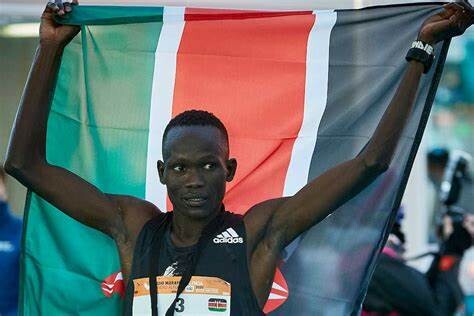
“However, two names are missing from the start list this time. Kenya's superstar Eliud Kipchoge and Ethiopia's running legend Kenenisa Bekele. For the first time since 2014, neither of them will be taking part in Berlin.”
Kipchoge is the all-time Berlin Marathon champion having won a record five times. Last year, Kipchoge cut the tape in 2:02:42 followed by Vincent Kipkemoi (2:03:13) and Tadese Tekele of Ethiopia (2:03:24).
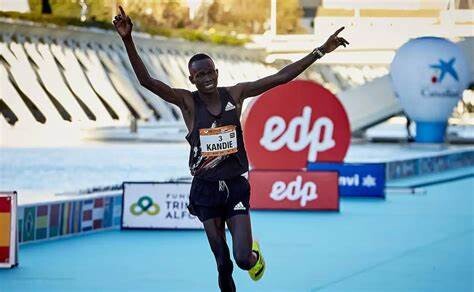
Kandie is a three-time Valencia Half Marathon champion from 2020 (57:32), 2022 (58:10) and 2023 (57:40).
He boasts titles from the 2020 Prague Half Marathon (58:38), the 2022 Adizero Road to Records 10km race (26:50) and the 2020 Ras Al Khaimah Half Marathon (58:58).
He has a silver at the 2020 World Half Marathon Championships (58:54) and a bronze in the 10,000m at the 2022 Commonwealth Games (27:20.34).
He will team up with 2022 Castellon Marathon winner Ronald Korir, Amsterdam Marathon runner-up Cyprian Kotut, 2023 World Road Running bronze medallist Samwel Mailu and Shanghai Marathon champion Philemon Kiptoo.
Ethiopia’s Takele, last year’s silver medallist, is expected to pose a serious challenge for the Kenyans, alongside compatriot Hailemaryam Kiros, the 2023 Osaka Marathon champion.
Tokyo Marathon runner-up Rosemary Wanjiru leads the charge in the women’s elite race.
The 29-year-old’s accolades include victories at the 2023 Tokyo Marathon (2:16:28) and the Hokuren Distance Challenge in the 10,000m (30:38.18) in Japan.
She is also a runner-up at the 2020 Valencia 10km Road race (29:50) and the 2022 Berlin Marathon (2:18:00).
She faces a rich Ethiopian contingent led by Dubai Marathon champion Tigist Ketema, 2018 Shanghai Marathon champion Yebrgual Melese, Paris Marathon champion Mestawut Fikir and 2023 Osaka Marathon runner-up Sisay Meseret.
Also in the mix is three-time Osaka Marathon champion Mizuki Matsuda of Japan.
(08/17/24) Views: 126Teddy Mulei
How Emmanuel Wanyonyi’s rival faced an anti-doping raid before Olympic 800m final
A track athlete was raided by anti-doping officials at the Olympic village days before securing a bronze medal in the 800m event.
Olympic 800m bronze medalist Djamel Sedjati is believed to be still under scrutiny by the Athletics Integrity Unit (AIU) following a dramatic raid in the Olympic village just days before the final event.
The incident, which unfolded a week ago but garnered minimal media attention at the time, involved French anti-doping officers executing a search linked to an ongoing investigation into alleged doping practices.
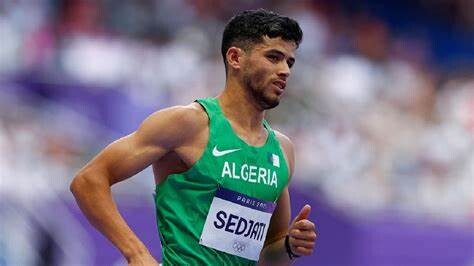
The raid, led by the French Anti-Doping Agency (AFLD), targeted Sedjati’s accommodations and was part of a broader probe that also implicated Algerian athletics coach Amar Benida.
According to the French sports daily L'Equipe, sources close to the investigation have indicated that Benida was the primary focus of the inquiry.
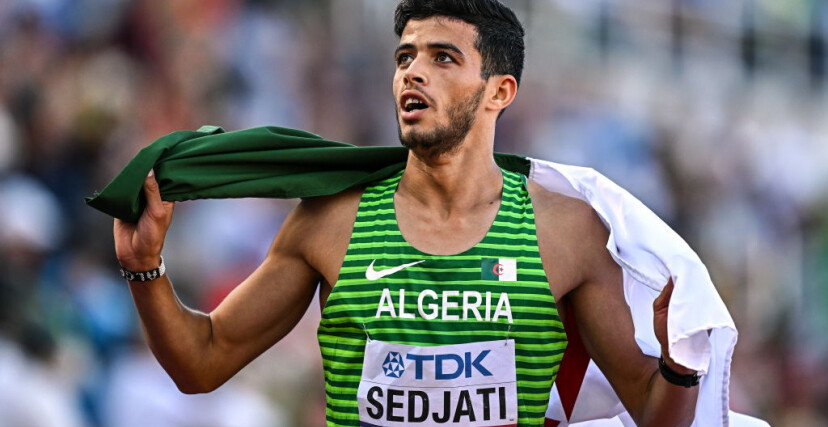
This revelation puts a different light on the events, suggesting that Sedjati may have been collateral in the broader investigation rather than the direct target.
In the wake of the raid, Sedjati displayed remarkable composure, securing a third-place finish in a fiercely competitive 800m final at the Stade de France.
The race itself was historic, with four of the seven top times on the all-time performance list being recorded, highlighting the extraordinary level of competition.
Emmanuel Wanyonyi of Kenya clinched gold with a time of 1:41.19, becoming the third-fastest performer in history.
Following his performance, Sedjati addressed the incident at a press conference.
"Nothing (important) happened. These are things that athletes can face. Thank God it was only a small inconvenience. I was quickly able to get back to normal," Sedjati told reporters.
The Paris prosecutor's office and the AFLD have remained silent on the matter offering no comments or insights into the ongoing investigation.
This lack of official information has fueled speculation and concern within the athletics community.
In response to the controversy, the Algerian Olympic Committee issued a strong statement via Al24News, condemning what they described as "malicious attempts aimed at tarnishing the image of the Algerian runner Djamel Sedjati, victim of unjustified attacks by certain sports media."
This statement reflects the tension and the high stakes involved, particularly in light of Sedjati’s recent performances and his stated ambition to break David Rudisha’s 800m world record.
Sedjati’s resilience was on full display just weeks prior at the Monaco Diamond League, where he won the race in an impressive 1:41.46, just shy of his personal best set in Paris.
His capabilities and recent form make him a significant figure on the track, and the timing of the raid raises questions about the implications for his career and reputation.
(08/17/24) Views: 125Festus Chuma


